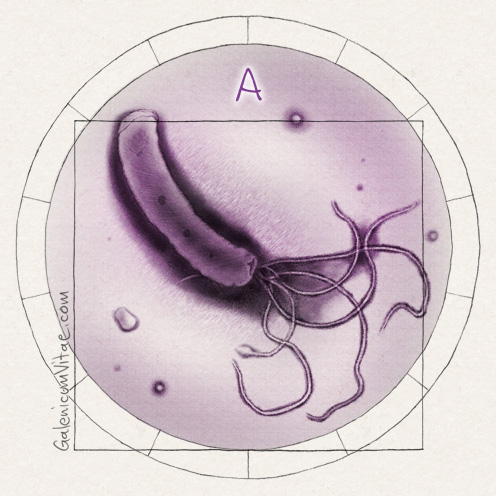Helicobacter pylori is the bacterium that causes more than half of peptic ulcers worldwide. The bacteria damages the mucous coating that protects the stomach and the duodenum. Damage to the mucous lining allows stomach acid to pass through the mucosal lining of the stomach and the duodenum.
However, most people with Helicobacter pylori develop ulcers and do not simply act as carriers. The mechanism by which the bacteria cause ulcers in some people but not in others is unknown. It is likely that the development of the ulcer depends on characteristics of the individual, the type of Helicobacter pylori strain, and the presence of other factors that are still unknown.

 Digestive
Digestive  Blood
Blood Cardiovascular
Cardiovascular Dermatology
Dermatology Genitourinary,
Genitourinary, Hormones
Hormones Infections
Infections Oncology and
Oncology and Musculo-skeletal
Musculo-skeletal Mental health and
Mental health and Parasites
Parasites Respiratory
Respiratory Senses
Senses Various
Various




